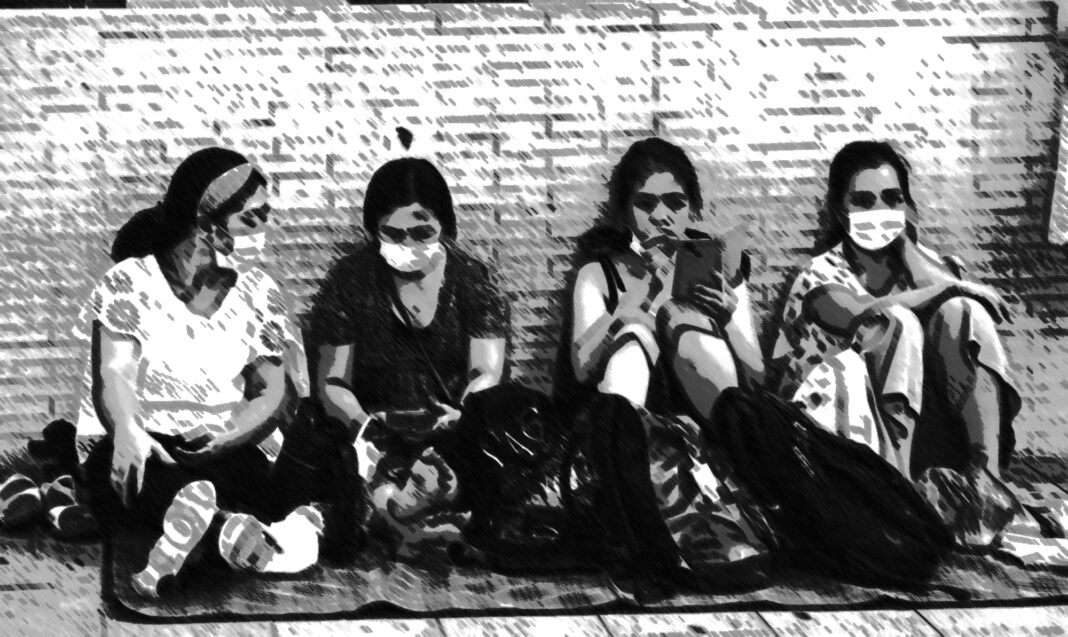The gunfire echoed along the ship’s corridor. Kuya One, who was known only by his call sign, welcomed the sound this time, as it was an indication that some of his men were still alive. He sadly realized that their movement, at least this version of it, the one that he and his wife had envisioned, reared and guarded for over fifteen years, was effectively over. Their black-clad adversaries were just too many for them but his men would not be outfought.
Kuya One gathered his thoughts as his two bodyguards clutched their machine pistols, prepared to lose their lives and save his, crouching on both sides of the entrance to his cabin. Their guns had been made by their armorer from Danao, with the help of 3D printers and hand tooled metal parts at a secret base somewhere in Sabah. When arms were hard to come by, they made their own. He knew his time had come. They had barely escaped Singapore to board this ship. They had been on a scouting mission where their cover was as a hotel band that doubled as an armed partisan unit. A paid and supposedly witty columnist from The South China Morning Post was derisively calling it “T e Revolt of Rolling Pins, Pots and Pans” to denigrate and diminish this organization they had created to originally protect the domestic helpers wherever they may be from abuses and which had now extended to all other Filipino overseas workers. Where someone had been mistreated and could find no legal recourse, they would direct that a version of their weaponized and practical justice be served upon the guilty. In time, employers were suddenly forced to unaccustomed courtesy, not knowing if the helper they battered by day, would be a pistol- carrying member of his group at night. Their reach was long, as they counted members in every place a Filipino worked, from homes, manors, offices, warehouses, hotels to plants and ships. And they had envisioned a time when any negotiations or collective bargaining would not have them toothless or at the mercy of their bosses, as a force with arms would be within ready reach.
But with a sense of inevitability, the past reared its ugly head yet again and just like the Katipunan which was betrayed by a priest; so, too, was their society put out into the light by the misguided confession of a conscience-stricken supporter. Governments acted swiftly in rounding up the adherents and impounding their weapons. But some of their people just refused to give up.
He knew each member of the all-women Balabagan brigade by name, having helped recruit them. The group was christened as such to honor a domestic helper who had been once imprisoned and sentenced to die in the United Arab Emirates. Its cell members had all broken cover when the alert went out that their organization had been discovered in order to make one last stand at Statue Square in Central, Hong Kong, one of the scenarios they had planned for but never thought they would have to execute. He looked at the scattered reports of fighting in other areas of the world, where their red flag with the drawing of a fist had been raised, the two workers’ dormitories in Abu Dhabi, a country estate in the United Kingdom, a number of ships at sea as well as so many other places where there was resistance still. But the outcome was not in any doubt. His people could not hope to win by feat of arms and he wept for them all.
In the tense and momentary quiet inside the vessel’s corridors, as each side clutched their guns and hugged what served as cover close, Kuya One was disheartened as he heard a soft and reasonable voice speak out in Filipino, “Mga ’Pare, sumuko na kay….” But this was cut off by the harsh and angry response from one of his men, “Putang-ina ninyo, mga traydor!” and he let loose a volley of fire. It added to his sense of defeat and sorrow that so much of their own kind was aiding their foes. Ages ago, Filipino scouts had helped to hunt down the revolutionaries who fought against Spaniards and then the Americans. Kuya One resigned himself to what was to come and sent his final transmission, writing it in the Draft section of an email account he shared with Ate One, his wife and co-chair, to help avoid detection of their communications. He went to his two defenders one last time, the bass guitarist and lead singer of the band in their other lives, to embrace them closely, not needing to say more and they steeled themselves to die at their post, to cover his retreat.
Kuya One walked down the corridor to a secret door fashioned by his sailors that brought himself outside to the ship’s rails where it was dark and raining. He was immediately cold and looked down into the blackness of the sea. He pulled out his pistol and shot through the hard drive of the laptop before fastening it around his body. After a staccato of shots and two explosions, he could no longer hear the sound of battle. His men had finally lost. Without any further hesitation and without making any noise, he quickly cast himself to the ocean’s depths, leaving no time for regrets or second thoughts, the muffled sound of his mortal fall further drowned out by the growls of the storm and the strong waves. He had never learned to swim.
The Bank of America building in Hong Kong’s Central Business District towered over Ate One who was sitting on a piece of cardboard surrounded by the other Filipina domestics, looking just the same as the others. This was a corner that they had unilaterally claimed as their place of rest, where Ate One could savor the scents of home, the aroma of adobo, kangkong and even laing which would mix with the more antiseptic smell of nail polish and acetone, for those wanting beauty and not sustenance. And it was comforting to listen to the people chat and speak in their various dialects. She was holding a phone in her hand, just like so many others there, willing her tears back as she read Kuya One’s last message. The instructions were short and succinct and she agreed with what had to be done. Their compatriots needed hope. His farewell to her was almost the same as there was not much to say or add to the joint struggle and life that they had shared. She read the message again and pushed back the urge to mourn and to wail, she had no time for that now. She looked around and saw the five women of her security detail watchfully waiting, strategically scattered among the crowd of domestics chatting, resting, sleeping and eating on their makeshift cardboard carpets and dividers, unaware that the now current Supremo of the movement was among them. She nodded and rose up, as it was time to go. She pressed “Send” on a message using another cellphone, advising the comrades of Kuya One’s heroic escape and the valor of the people under his command in protecting his withdrawal from the field. Kuya One had been wounded but had escaped their enemies, not letting go of his pistol as he was carried away from the fighting, firing at them up to the last opportunity. Kuya One would have to die some other day.

Ate One paced slowly down the street, without any thoughts, and accidentally knocked over some fruit from a stand. She immediately stooped down to pick them, embarrassed and flustered. As she rose, she recoiled from the heated and contemptuous words that poured on her from the vendor which was their wont, in the language she never really understood and hated, the tongue of their oppressors in this city. And the deep grief, mixed with an abiding anger, swelled up from her heart as her face darkened and her back straightened up with a rigid defiance and scorching hate. She turned a wrathful gaze to the man verbally abusing her, her fury at the breaking point, willing him to say even more so that she could make an appropriate response.
The man glanced at her face and his tirade petered out as he looked into her eyes and saw his certain doom written there. He quickly averted his gaze. Ate One stood there for a minute longer, daring and wanting him to do more before slowly turning to walk away, her anger gone but not her sorrow, without looking back as a tear finally fell down her cheek, whether of anger or sadness it did not matter. No more would be shed, she promised herself, not until they had won.
Her Manang, the oldest and longest serving close-in security she had, was not as forgiving. As she followed as Ate One’s rear guard, she hung back and hawked from the depths of her chest as she spat a healthy wad in the fruit vendor’s direction, no longer careful or caring that she might be discovered, just wanting an excuse to strike a blow, for her commander, her chief, her ward, for someone she looked on and treated as her own daughter and for her long-suffering brothers and sisters. Her hands that had been hardened by so much toil in the fields, from pounding clothes near a river, from hoisting soup cauldrons in hot kitchens and later used to care so tenderly for the children of strangers, hung loose at her sides, ready to do deadly harm and meaningful mayhem to someone else.
But the man, with a measure of diffident prudence melting into cowardice, continued to fiddle with his produce and pretended not to see.



